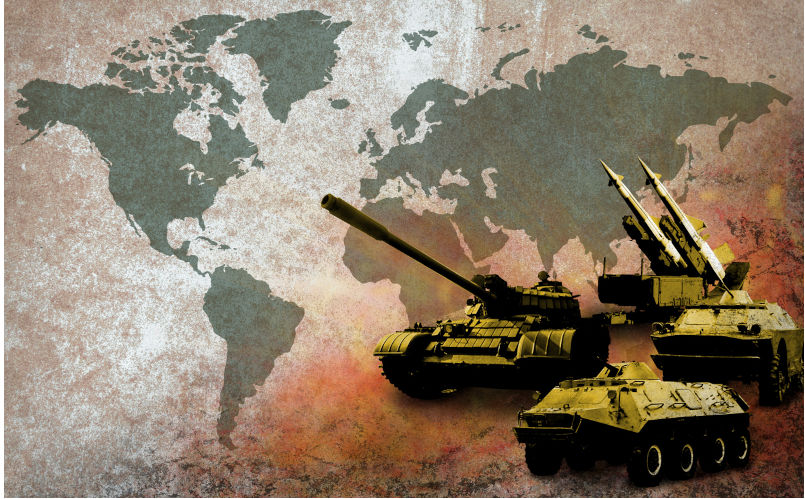Security: when even the good give up
July 13, 2024
I’m a great admirer of George Monbiot. As one of the The Guardian’s most prominent and influential columnists he has long been a trenchant critic of neoliberalism, and an informed and persuasive commentator on key issues surrounding the environment and economic inequality in particular. This is what makes his most recent column on geopolitics and security such a surprising and rather depressing read.
The crux of Monbiot’s evolving and reluctantly embraced position is that ‘we need to enhance our conventional capabilities, both to support other European nations against Russia and – something that seemed unimaginable a few years ago – perhaps to defend ourselves’.
The ’we’ in this case is the United Kingdom, that’s significant for two reasons. First, the UK is clearly closer to and more involved in an old-fashioned interstate war than Australia is. The reality of conflict, however pointless and avoidable, in what was formerly seen as one of the world’s most peaceful, prosperous and stable neighbourhoods would focus anyone’s attention.
Second, the UK is a significant military power by European standards, largely because of its possession of nuclear weapons. Whatever the UK does or doesn’t do under its new government will make a difference, if only symbolically. What we do know is that Keir Starmer is unlikely to oppose the AUKUS project, which it is hoped will generate jobs and investment for Britain’s arms manufacturers.
To Monbiot’s credit, it is not the presumed benefits for the British economy that has brought about his apparent change of mind on defence. His principal concern is that the US may become an even more unreliable and unpredictable strategic partner in the increasingly likely event that Donald Trump becomes president once more. Clearly, this really is something we should all be worried about – including our own government and strategic elites, of course.
What makes Monbiot’s apparent change of mind so dispiriting, though, is that credible and influential voices arguing against military solutions to complex problems are thin on the ground. The cheer squad supporting a ramping up of defence spending, by contrast, is much larger and much more influential for entirely predictable reasons: many of them can imagine nothing else, or stand to personally benefit from lucrative defence contracts.
In this context, prominent critics of mindless, ruinously expensive militarism suddenly having epiphanies and joining, however reluctantly, champions of the conventional wisdom is not helpful. With or without Monbiot’s voice, there is a certain inevitability about the direction of travel: despite the significant opportunity costs involved in dedicating ever more resources to military spending the orthodoxy will triumph as it always does.
The First World War is still the quintessential demonstration of why this might not be a good idea: deterrence doesn’t always work, and arms races inevitably end in tears – oceans of them. If we passively accept or support a ‘realist’ understanding of the world as inevitably a violent struggle for self-preservation, then I think I know what we’ll eventually get.
The problem with all that spending on ever more exotic and ‘efficient’ weapons systems is that someone or other will eventually want to use them. The more of them you have available, the worse the results are likely to be. That is not rocket science. Putin may be the rule rather than the exception in this regard.
Continuing to argue that it’s best to avoid getting ourselves into such situations in the first place seems a worthwhile if quixotic enterprise. I’m afraid one more voice among the ‘sensible chaps’ who look after security issues for us really isn’t going to make a difference, George.
However, there’s one possibly insurmountable problem facing those of us trying to make a case for a different approach to managing the sorts of ‘security dilemmas’ which seem such an inescapable feature of inter-state relations: it’s possible to imagine the idea of something like global security, but it’s not possible to imagine the reality, or not with the sorts of people who generally assume positions of power within national polities, at least.
But I don’t think it’s too controversial to suggest that whatever we are doing collectively now isn’t working. Interstate and civil wars, to say nothing of the catastrophic impact they have directly on people killed and displaced, are making an unwelcome comeback. All of this makes addressing the sorts of economic inequalities and especially climate problems that will inevitably further destabilise the world, all the more crucial.
I’m not holding my breath. But I am going to continue contributing my 800 words occasionally in the hope that it might make some sort of difference, at least in the very fortunate country in which I live. In the absence of a global revolution led by the young who will be the principal victims of the idiocy of their elders, it’s the least we can do.

